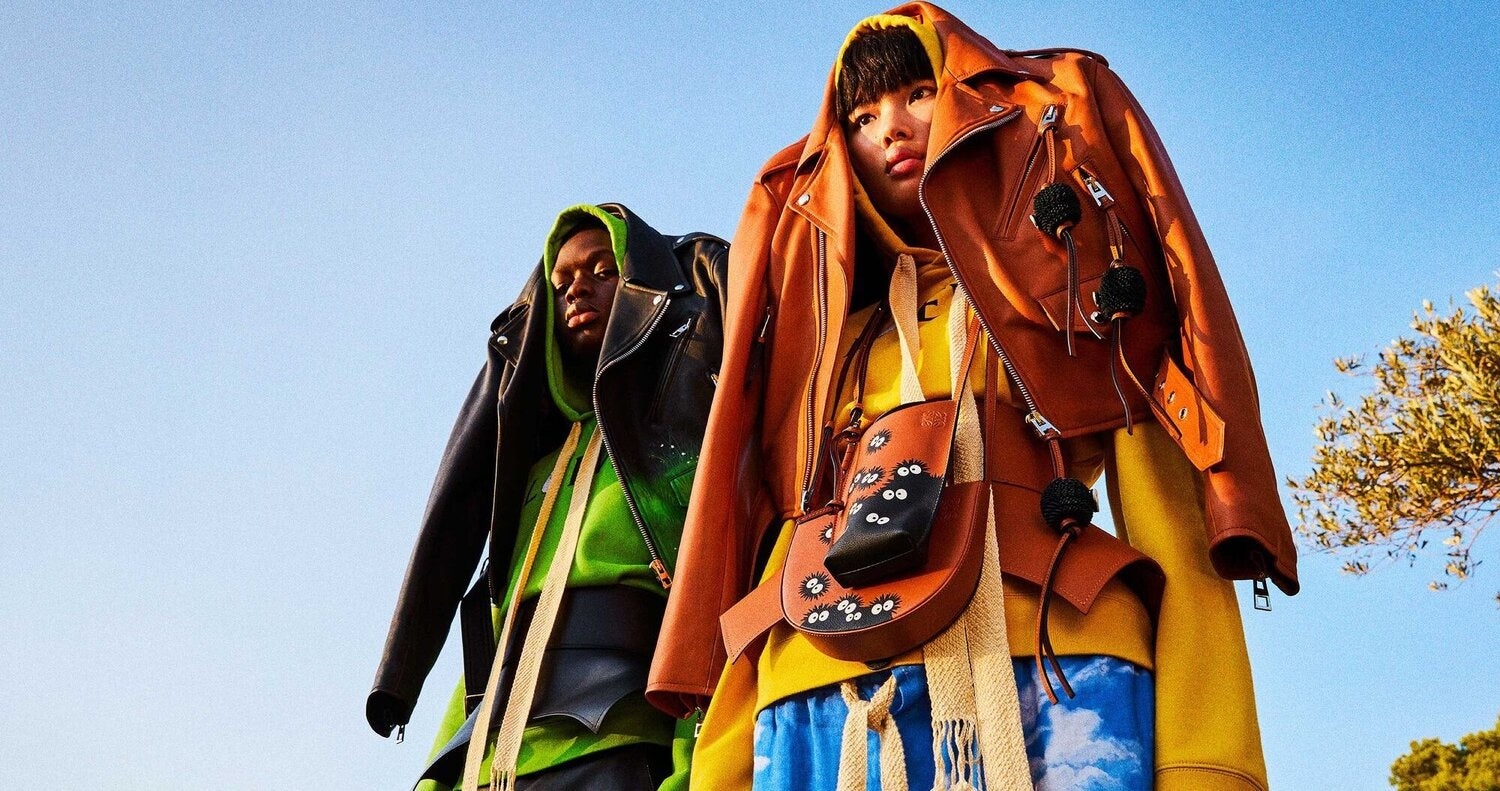If there’s one trend that has exploded and become ubiquitous across consumer segments over the past few years it’s the influence of video games and the cartoon-ification of marketing. As more brands choose to “hire” virtual ambassadors over real-life celebrities or produce virtual collections for popular video games, luxury is starting to look — and feel — a lot more animated.
Collaborations with virtual performers are where we’re seeing more investment from brands. More than two decades after the British “virtual band” Gorillaz hit the scene, a new wave of computer-generated performers now reaches audiences of millions worldwide, with East Asia arguably leading the way.
In China, top virtual performers like Luo Tianyi regularly headline sold-out shows and lead campaigns for brands such as L’Occitane and KFC, while Japan’s Hatsune Miku has been called “the world’s most famous holographic pop star.” Meanwhile, major tech companies are bringing these virtual performers on stage (often in hologram form) for events like Bilibili’s recent Bilibili Macro Link (BML) concert, which starred some 30 Chinese and Japanese virtual performers.
Virtual “idols” from popular games are becoming a go-to choice for consumer and fashion brands. Last year, Xing Tong, a character from Tencent’s QQ Dance game was named as a brand ambassador for sportswear label Li Ning, after previously working with Levi’s. Meanwhile, others such as Kentucky Fried Chicken and C-beauty brand Perfect Diary have cut out the middleman and created their own virtual idols.
In fashion, video game characters have become increasingly commonplace over the past decade, with characters from Final Fantasy appearing in a 2012 Prada campaign and 2016 ads for Louis Vuitton . In 2019, Moschino launched a capsule collection and collaboration with The Sims, and since then the pace of “fashion x gaming” collaborations has only sped up, with Nike offering virtual Air Jordan sneakers in the popular game Fortnite and players of Nintendo's Animal Crossing able to outfit their characters in brands like Valentino, Marc Jacobs, MCM, and Gentle Monster.
Given brands’ reluctance to deal with the egos, headaches, and controversies (not to mention the massive expense) of human influencers and celebrity spokespeople, the decision to collaborate with the CGI version is something of a no-brainer in these Covid-hit times, during which in-person events are few and far between.
Arguably the most interesting activity is taking place in the luxury market, where brands are turning to limited-edition video game and cartoon collaborations as a way to reach the next generation of their consumers. Last year alone,
Burberry announced a deal with Tencent Games’ Honor of Kings, Gucci’s Disney collections featuring Mickey Mouse and Donald Duck attracted global buzz, Louis Vuitton created its own character to star in Virgil Abloh’s “The Adventures of Zoooom with Friends,” and Balenciaga produced a video game, “Afterworld: The Age of Tomorrow,” to showcase its latest collection.
The new year has already witnessed the unveiling of a three-way collaboration between Pokémon Go and the buzzy Gucci x North Face collection, Gucci x Doraemon, and the highly anticipated Loewe x My Neighbor Totoro line. On collaborations, Loewe CEO Pascale Lepoivre told CCI last month that “We typically choose who we work with based on shared values, and a partner who we feel will add something exciting to a particular project.”
It is that last point that perhaps indicates why luxury brands are becoming more comfortable launching lighthearted collections that feature video game or cartoon characters —they have the potential to excite. For all their history and heritage, a growing number of luxury brands are looking to shake stodgy images and branch out beyond their existing older core consumers to drive long-tail sales for decades to come.
Younger millennial and Gen Z consumers, more resistant to traditional advertising, are excited by limited-edition drops featuring their favorite virtual characters. With the growing spending power and influence these younger shoppers will wield, expect this trend to continue well beyond 2021.

